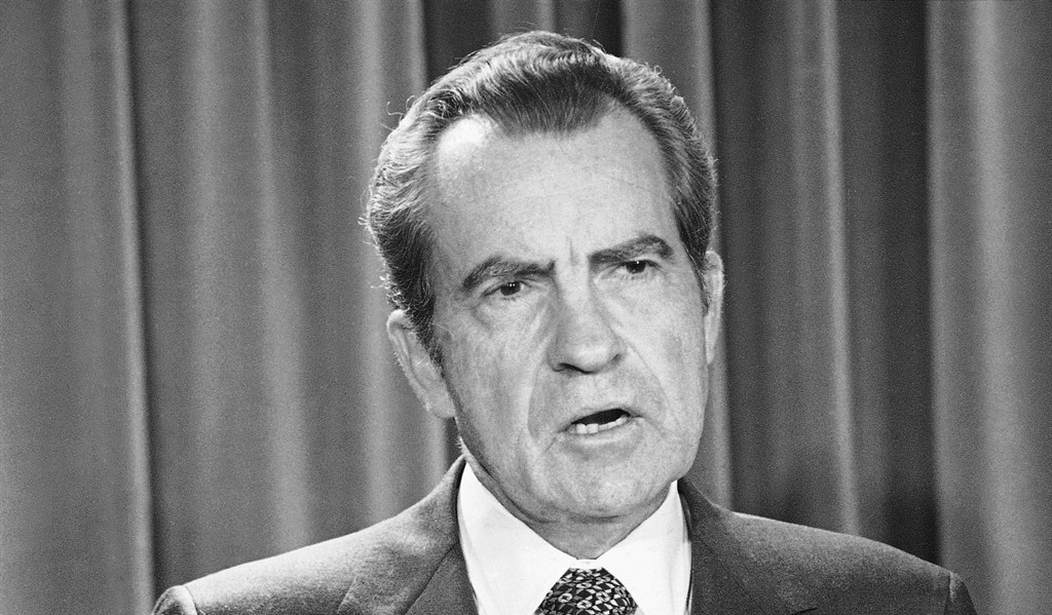In a resurfaced 1983 interview, Richard Nixon reflects powerfully on the power that the media truly wields via what he terms the “media elitist complex”:
[The media] have much more power than most people would like to think. When we think of the media in this country, the problem is that they have a sense of self-righteousness, a double standard on issue after issue after issue. They can find everything wrong with somebody else, but they will not look inside and ever admit that they could be wrong themselves. And what was involved here in the Watergate thing was the unfairness of it… They allowed their advocacy to get ahead of their reporting, which is their job to do. You know, President Eisenhower, in his farewell address, wrote about and warned against the power of the military-industrial complex. I didn’t get a chance to make a farewell address, but when I get old enough and decide to retire… if I make a farewell address, I think I would warn against the media-elitist complex…
I think we ought to hear a little bit of discussion of the imperial media and its power. You see, presidential power is limited… The media’s power is unlimited.
Related: Elite Media Propagandist Cries at Davos: ‘We Owned the News’
That last bit there is a brilliant insight I had never considered in the way he framed it; law constrains, however poorly and insufficiently, the power exercised by the president, Congress, and judiciary. There is no such legal check on media power, aside from slander and libel, which grant wide leniency in terms of interpreting and reporting facts. And perhaps there ought not to be, as we have the First Amendment, but it’s worth considering what evil can be done with that power.
As I referenced in a different context at PJ Media yesterday, one of the problems that I believe has contributed greatly to the disintegration of the social fabric and the growing distrust of institutions over the years is that a functional society with a truly representative government requires the robust, consistent practice of “straight news reporting” — investigative journalism aimed as closely and solely on discovering the truth of a matter irrespective of political factionalism, ideological commitments, or preserving special interest power.
The Founders understood well the crucial role of a free, dogged, and honest press in exposing the malfeasance of corrupt government and non-government actors alike to the cleansing light of day, which is why they included protection of it in the First Amendment, sandwiched between freedom of speech and the right to peaceably assembly (all three of which, in addition to other Constitutional rights, are under intense assault at the moment by the corporate state).
Related to the “media elitist complex” and the power to control narratives that it wields so forcefully, my impression of Richard Nixon himself has evolved significantly over the years. In my youth, I learned that Richard Nixon was the epitome of presidential abuse of power. He still seems to me, although very smart and capable an executive, a prickly bear, not cuddly or charismatic in the least — which makes the fact that he managed to get elected president more impressive — but his corruption, as far as national-level politicians go, was not particularly egregious or unusual. There is seemingly much more to the Watergate scandal that took him out, and media reporting of it, than has made its way into popular history.










